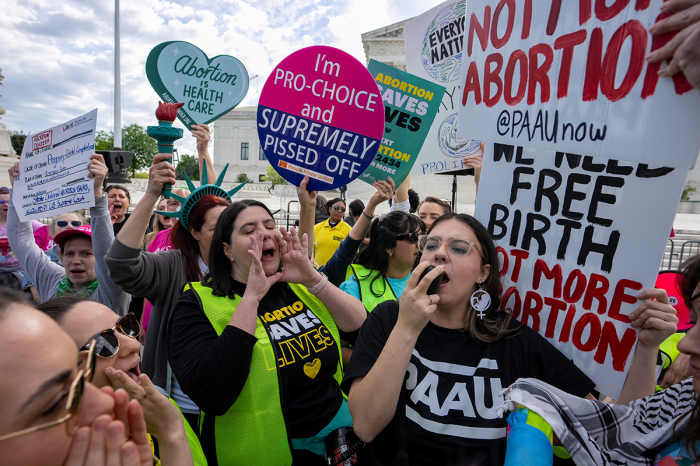Supreme Court dismisses Idaho abortion ban lawsuit, sends case back to lower court

The U.S. Supreme Court has dismissed litigation surrounding Idaho’s abortion ban, allowing a lower court ruling permitting federal guidance to be in play that would require hospitals to perform emergency abortions.
The Republican-led Idaho government and the Biden administration have been at legal odds over the state’s near-total abortion ban, which only allows for abortions when the life of the mother is threatened. The federal government believes that the state must provide abortions under the Emergency Medical Treatment and Labor Act.
In a brief per curiam opinion released Thursday morning, the Supreme Court dismissed Moyle v. United States and Idaho v. United States as “improvidently granted,” meaning that the high court should not have heard arguments in the case.
The Supreme Court also vacated a stay on a lower court injunction that allowed the federal government to require hospitals that receive Medicare funds to provide abortions for emergency reasons.
Justice Amy Coney Barrett authored a concurring opinion to the decision, being joined by Chief Justice John Roberts and Justice Brett Kavanaugh, believing that “the shape of these cases has substantially shifted since we granted certiorari.”
“The parties dispute whether EMTALA requires hospitals to provide abortions — or any other treatment forbidden by state law — as necessary stabilizing care. They also disagree about whether EMTALA, as a statute enacted under Congress’s spending power and that operates on private parties, can preempt state law (an issue aired for the first time in this Court),” wrote Barrett.
“In my judgment, it would be imprudent to answer these important questions now. Since this suit began in the District Court, Idaho law has significantly changed — twice. And since we granted certiorari, the parties’ litigating positions have rendered the scope of the dispute unclear, at best.”
The day before the per curiam dismissal was released, an unknown party reportedly leaked a copy of what might have been the opinion the day before by posting it on the Supreme Court’s website.
The leaked opinion purported to show that the Supreme Court was going to dismiss the case and allow for emergency abortions to take place under EMTALA while the litigation continued, reported Bloomberg Law on Thursday.
For its part, the National Right to Life Committee issued a statement in response to the purported leaked decision, noting that they “remain hopeful that lower courts will uphold the Idaho law which, like laws in all 50 states, explicitly allows miscarriage care and treatment in a medical emergency.”
EMTALA was passed in 1986 and centers on "public access to emergency services regardless of ability to pay," requiring hospitals participating in Medicare to provide medical services to all people.
"Hospitals are then required to provide stabilizing treatment for patients with EMCs. If a hospital is unable to stabilize a patient within its capability, or if the patient requests, an appropriate transfer should be implemented," states an EMTALA information page.
In July 2022, shortly after the Supreme Court overturned Roe v. Wade, the U.S. Department of Health and Human Services issued guidance claiming that EMTALA required hospital emergency staff to perform abortions.
The U.S. Department of Justice filed a lawsuit against Idaho over its abortion ban, which only allowed for the procedure when the life of the mother was threatened, citing EMTALA as a justification.
Last September, a three-judge panel of the 9th U.S. Circuit Court of Appeals ruled that Idaho could enforce its ban, overturning a lower court decision in favor of the federal guidance.
The Supreme Court heard oral arguments in the case in April, with U.S. Solicitor General Elizabeth Prelogar rejecting the claim that the case was about abortion bans in general.
"Even states that have sharply restricted access to abortion after Dobbs generally allow exceptions to safeguard the mother's health," Prelogar claimed. "But Idaho makes termination a felony punishable by years of imprisonment unless it is necessary to prevent the woman's death."





























